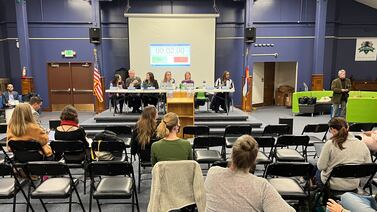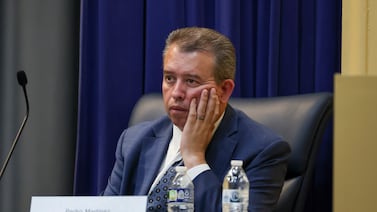Michigan officials should work to account for students who disappeared from school rolls this fall due to the pandemic, Gov. Gretchen Whitmer said Friday.
There has been no coordinated statewide effort so far to identify the 13,000 students who are unaccounted for this fall.
Tens of thousands more are being home-schooled or, in the case of kindergartners, waiting an additional year before entering classrooms. Last week, Chalkbeat reported an overall enrollment drop of nearly 4% this year, or 53,000 students, according to unaudited figures. While Michigan enrollment has been declining steadily for years, the decline this fall was the largest by far in more than a decade.
Educators worry that students who did not enroll in school this fall will need more academic and emotional support than usual when in-person instruction resumes.
“Accounting for every child is an important part of the work that we will have to do — that we must do,” Whitmer said during a press conference Friday, adding: “The state has a very important role to play.”
In an opinion piece about missing children published this week, State Superintendent Michael Rice called on the state legislature to create a registry of home-schoolers, which he said would help ensure that no students went unaccounted for. Rice said that 17,000 families told their schools that they intended to home-school this year.
Rice did not articulate a statewide plan to identify missing students, writing that “the granular work to find children must take place at the local level, where teachers, support staff, and administrators know children, families, and communities, and where community connections with churches, neighborhood associations, and other youth- and family-serving entities can help.”
Whitmer said during the press conference that the state is working on strategies to meet the needs of children who have “experienced a real gap in their education and real learning loss.”
“Working in collaboration with our families, with our teachers, with our administrators, our expertise is going to be absolutely essential,” she said. “But this gap will be real. The learning loss will be profound. We know this, and that’s why it has to be a centerpiece of the work we do going forward.”







